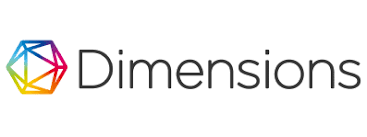Community-Based Paralegals for Access to Justice in Indonesia
A Strategic Enhancement
Abstract
Legal aid is an essential instrument in the criminal justice system, primarily to protect the human rights of the person who faces a trial. In 2019, The Indonesian Access to Justice Index identified the biggest problem in implementing legal aid: the distribution of lawyers due to the lack of understanding of the right to legal aid. Building on this research, the author found that most Indonesians prefer to seek legal help from non-formal legal assistance, such as family members, friends, and prominent community leaders, rather than formal legal assistance. Therefore, reducing the gap in people's capacity to maximize legal empowerment by increasing the number of paralegals in the Indonesian community is crucial. This article examines how community-based paralegals can significantly empower vulnerable communities and enhance strategic access to justice. Through the lens of social capital theory by Robert D. Putnam, this article argues that community-based paralegals can strengthen bonding social capital by empowering the community from within and reinforcing social ties among its members, and enhance bridging social capital by building external networks and opening access to information and resources that can support community welfare. Again, community-based paralegals offer a vital and effective alternative to traditional lawyers, mainly where legal professionals are scarce and unaffordable.
Keywords: Access to Justice, Community-Based Paralegals, Legal, Marginalized Communities
References
Asfinawati, Larasati, Dio Ashar Wicaksana, and Ratna Batara Munti. ‘Rekomendasi Konferensi Nasional Bantuan Hukum: Perluasan Akses Keadilan Melalui Optimalisasi Layanan Bantuan Hukum Yang Berkualitas. Indonesia’. Jakarta: Yayasan Lembaga Bantuan Hukum Indonesia, Indonesia Legal Resources Center, Asosiasi LBH Apik Indonesia, LBH Jakarta, LBH Masyarakat, LBH Apik Jakarta, Masyarakat Pemantau Peradilan Indonesia Fakultas Hukum Universitas Indonesia dan Perhimpunan Bantuan Hukum dan Hak Asasi Manusia Indonesia., 2019.
Ashila, B. I., and M. Maharani. ‘Nikahin Aja!”: Penanganan Kasus Pemerkosaan Dan Kekerasan Seksual Selama Ini Belum Fokus Pada Pemulihan Dan Hak Korban’. The Conversation (blog), 2021. https://theconversation.com/nikahin-aja-penanganan-kasus-pemerkosaan-dan-kekerasan-seksual-selama-ini-belum-fokus-pada-pemulihan-dan-hak-korban-163011.
Balmer, Nigel J, Alexy Buck, Ash Patel, Catrina Denvir, and Pascoe Pleasence. Knowledge, Capability and The Experience of Rights Problems. United Kingdom, London: Plenet, 2016.
Barendrecht, Maurits. ‘Legal Aid, Accessible Courts or Legal Information? Three Access to Justice Strategies Compared’. Global Jurist 11, no. 1 (25 March 2011). https://doi.org/10.2202/1934-2640.1374.
Budiarti, A. I., G. N. Arianto, M.R. Warneri, Dio Ashar Wicaksana, K. Sutanti, F. Risha, and A.M. Akdom. Kebutuhan Anggaran Bantuan Hukum Yang Berperspektif Kelompok Rentan. Indonesia. Jakarta: Indonesia Judicial Research Society, Asosiasi LBH APIK Indonesia, Perhimpunan Bantuan Hukum & Hak Asasi Manusia & Yayasan Lembaga Bantuan Hukum Indonesia, 2023.
Budiarti, A. I., Dio Ashar Wicaksana, G. N. Arianto, K.S. Aulia, K. Sutanti, P. Febry, and Harshita. ‘Laporan Penelitian: Survei Kebutuhan Hukum Bagi Kelompok Rentan 2022’. Indonesia, Jakarta: Indonesia Judicial Research Society, 2023a.
Budiarti, Arsa Ilmi, Dio Ashar Wicaksana, and Nanda Oktaviani. ‘The Role of Technology in the COVID-19 Pandemic Era: A Lesson Learned from Indonesia in Increasing Access to Legal Aid’. Journal of Contemporary Sociological Issues 3, no. 1 (26 February 2023): 1–22. https://doi.org/10.19184/csi.v3i1.27710.
Carmona, Magdalena Sepulveda, and Kate Donald. ‘Beyond Legal Empowerment: Improving Access to Justice from the Human Rights Perspective’. The International Journal of Human Rights 19, no. 3 (1 April 2015): 242–59.
Coumarelos, C., D. Macourt, J. People, H.M. McDonald, Z. Wei, R. Iriana, and S. Ramsey. ‘Legal Australia-Wide Survey: Legal Need in Australia’. Australia, Sydney: Law and Justice Foundation, 2012.
Dancer, Helen. ‘Power and Rights in the Community: Paralegals as Leaders in Women’s Legal Empowerment in Tanzania’. Feminist Legal Studies 26, no. 1 (1 April 2018): 47–64.
Footer, Katherine, Michael Windle, Laura Ferguson, Jordan Hatcher, Carrie Lyons, Emma Gorin, Anne L. Stangl, Steven Golub, Sofia Gruskin, and Stefan Baral. ‘A Meta-Narrative Literature Synthesis and Framework to Guide Future Evaluation of Legal Empowerment Interventions’. Health and Human Rights 20, no. 2 (December 2018): 65–84.
Franco, J., H. Soliman, and Maria Roda Cisnero. ‘Community Based Paralegalism in the Philippines : From Social Movements to Democratization’. United States of America, Washington D.C.: World Bank, 2014.
Golub, S., and K. McQuay. ‘Legal Empowerment: Advancing Good Governance and Poverty Reduction’. Law and Policy Reform at the Asian Development Bank, 2000. https://gsdrc.org/document-library/legal-empowerment-advancing-good-governance-and-poverty-reduction/.
Golub, Stephen. ‘What Is Legal Empowerment? An Introduction’. In Legal Empowerment: Practitioners’ Perspectives, edited by S. Golub and T. Mclnerney, 9–18. Italy, Rome: International Development Law Organization, 2010.
Häuberer, Julia. Social Capital Theory: Towards a Methodological Foundation. VS Verlag für Sozialwissenschaften, 2011.
Holness, Dave. ‘Promoting the Quality of Legal Aid in South Africa through Better Coordination of Service Provision’. Law, Democracy and Development 25 (2021): 1–23.
International Development Law Organization. ‘Navigating Complex Pathways to Justice: Community Paralegals and Customary and Informal Justice’. Italy, Rome: International Development Law Organization, 2021.
Kapal Perempuan. ‘Gender Watch – Mampu Program’, 2020. https://kapalperempuan.org/wp-content/uploads/2020/02/profil-kapal-mampu-feb20.pdf.
Khair, S. ‘Legal Empowerment for Improved Access to Justice: Dominate Discourses’. Hague Journal on The Rule of Law 28 (2017): 1–20.
Komara, A., S. Dirga, and T. Reffelsen. Paralegal, Para Penjegal Ketidakadilan: Kumpulan Kisah Penanganan Kasus Paralegal. Indonesia, Jakarta: Penerbit Lembaga Bantuan Hukum Jakarta, 2020.
Lawang, Robert M. Z. Kapital Sosial Dalam Perspektif Sosiologik: Suatu Pengantar. FISIP UI Press, 2005.
Legal Aid Act, Law No. 16 Year 2011, Pub. L. No. 16 (2011). https://peraturan.bpk.go.id/Details/39234.
Maharani, M., B. I. Ashila, S. Ismaya, A. Assyifa, Dio Ashar Wicaksana, N.R. Barus, and M.A. Nasir. Peran Pemberdayaan Hukum Oleh Komunitas Dalam Memperkuat Akses Keadilan Untuk Perempuan Berhadapan Dengan Hukum Di Indonesia: Studi Di Jakarta Dan Yogyakarta. Indonesia, Jakarta: Indonesia Judicial Research Society, 2023.
Maru, Vivek, and Varun Gauri. Community Paralegals and the Pursuit of Justice. Cambridge: Cambridge University Press, 2018.
McDonald, H.M., and J. People. ‘Legal Capability and Inaction for Legal Problems: Knowledge, Stress and Cost. , 41.’ Updating Justice Journal 41, no. June 2014 (2014).
Muhlizi, Arfan Faiz. ‘Penguatan Peran Tokoh Adat Sebagai Paralegal Dalam Memberikan Bantuan Hukum’. Jurnal Rechts Vinding: Media Pembinaan Hukum Nasional 8, no. 1 (15 May 2019): 127–45.
Murayama, Masayuki. ‘Experiences of Problems and Disputing Behavior in Japan’. Meiji Law Journal 14 (1 January 2007): 1–59.
Namati. ‘Indonesia Community Paralegals: Recognition & Financing’. Grassrootjusticenetwork.Org (blog), 2019. https://grassrootsjusticenetwork.org/wp-content/uploads/2019/04/Indonesia-Community-Paralegal-Research-Brief-Final.pdf.
New Zealand Legal Services Agency and Ignite Research (Firm). ‘Report on the 2006 National Survey of Unmet Legal Needs and Access to Services’. New Zealand, Wellington: Legal Services Agency, 2006.
Nielsen, Robin. ‘Sustaining Legal Empowerment in Initiatives to Support Local Land Rights’, 2012. https://www.iied.org/sites/default/files/pdfs/migrate/G03513.pdf.
Paralegals as Provider of Legal Aid Act, Regulation of Ministry of Law and Human Rights No. 3 Year 2021, Pub. L. No. 3 (2021). https://peraturan.bpk.go.id/Details/170944/permenkumham-no-3-tahun-2021.
Putnam, Robert D. Making Democracy Work: Civic Traditions in Modern Italy. Princeton, NJ: Princeton University Press, 1993.
Ramadhan, Choky Risda, Dio Ashar Wicaksana, Muhammad Rizaldi, Siska Trisia, Nanda Oktaviani, and Arsa Ilmi. Legal Needs Survey in Indonesia 2019 (Lampung and South Sulawesi Provinces). Jakarta: Indonesia Judicial Research Society, 2020. http://ijrs.or.id/wp-content/uploads/2020/12/Buku-Survei-Kebutuhan-Hukum-IJRS.pdf.
Ramadhan, C.R., Dio Ashar Wicaksana, Muhammad Rizaldi, Siska Trisia, Nanda Oktaviani, and A. I. Budiarti. ‘Survei Kebutuhan Hukum Di Indonesia Tahun 2019: Wilayah Provinsi Lampung Dan Sulawesi Selatan’. Indonesia, Jakarta: Indonesia Judicial Research Society, 2020.
Siregar, A.R. and Ihsanuddin. ‘Korban Kekerasan Seksual Di Ciputat Diancam Dicekik Jika Melapor’. Kompas, 2022. https://megapolitan.kompas.com/read/2022/11/03/11421521/korban-kekerasan-seksual-di-ciputat-diancam-dicekik-jika-melapor?page=all.
Szilvasi, Marek, and Maja Saitovic-Jovanovic. ‘Social Accountability and Legal Empowerment Initiatives’. Health and Human Rights 25, no. 1 (June 2023): 67–79.
Tardi, S.A., L. Umubyeyi, A. Nempung, A. Wijaya, I.M. Nistra, Khairullah, M.D. Safiti, and T.S.R. Marpaung. Paralegal Bukan “Parabegal”: Studi Persepsi Masyarakat Pencari Keadilan Tentang Peran Paralegal Dalam Pemenuhan Akses Keadilan Melalui Bantuan Hukum. Indonesia, Jakarta: The Indonesian Legal Resource Center. Indonesia, Jakarta: The Indonesian Legal Resource Center, 2019.
The Hague Institute for Innovation of Law. ‘Justice Needs In Indonesia 2014: Problems, Processes And Fairness’. 2014. https://www.hiil.org/wp-content/uploads/2018/09/Justice-needs-in-Indonesia.pdf.
Wicaksana, D.A., B. I. Ashila, A. I. Budiarti, Megawati Tatat, and R. Antika. ‘Laporan Studi Kuantitatif Barometer Kesetaraan Gender: Respons Dan Sikap Masyarakat Terhadap Rancangan Undang-Undang Penghapusan Kekerasan Seksual (RUU P-KS) Dan Undang-Undang Nomor 16 Tahun 2019 Tentang Perubahan Undang-Undang Nomor 1 Tahun 1974 Tentang Perkawinan’. Indonesia, Jakarta: International NGO Forum on Indonesian Development, 2020a.
Wicaksana, D.A., Erwin Natosmal Oermar, Siti Rakhma Mary Herwati, C.R. Ramadhan, A. I. Budiarti, Nanda Oktaviani, and A. Primaldhi. Index Of Access to Justice In Indonesia 2019. Indonesia, Jakarta: Civil Society Consortium for the Index of Access to Justice., 2020.
World Justice Project. ‘Global Insights on Access To Justice: Findings from The World Justice Project General Population in 101 Countries’. United States of America, Washington D.C.: World Justice Project, 2019.
———. ‘Measuring The Justice Gap: A People-Centered Assessment of Unmet Justice Needs Around The World’. United States of America, Washington D.C.: World Justice Project, 2019a.

This work is licensed under a Creative Commons Attribution-ShareAlike 4.0 International License.









